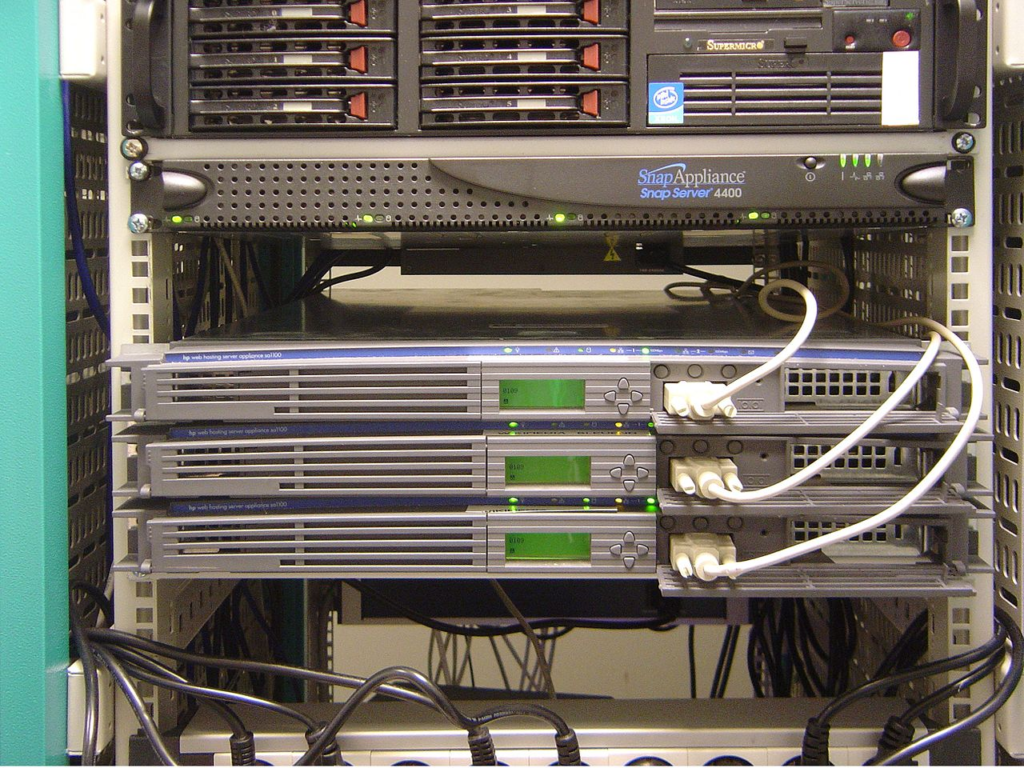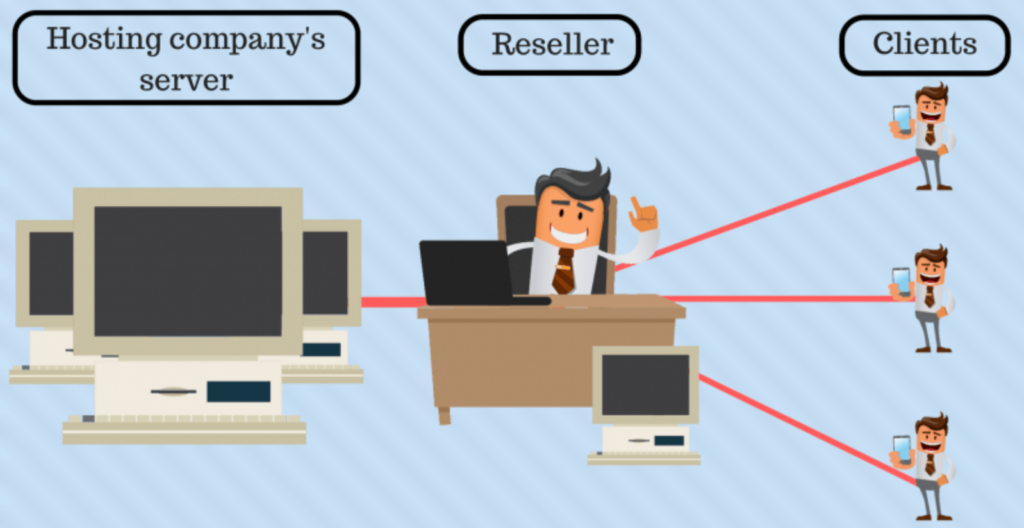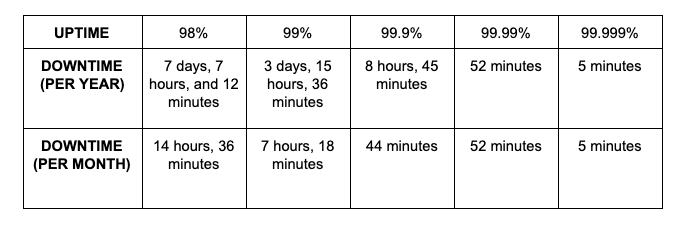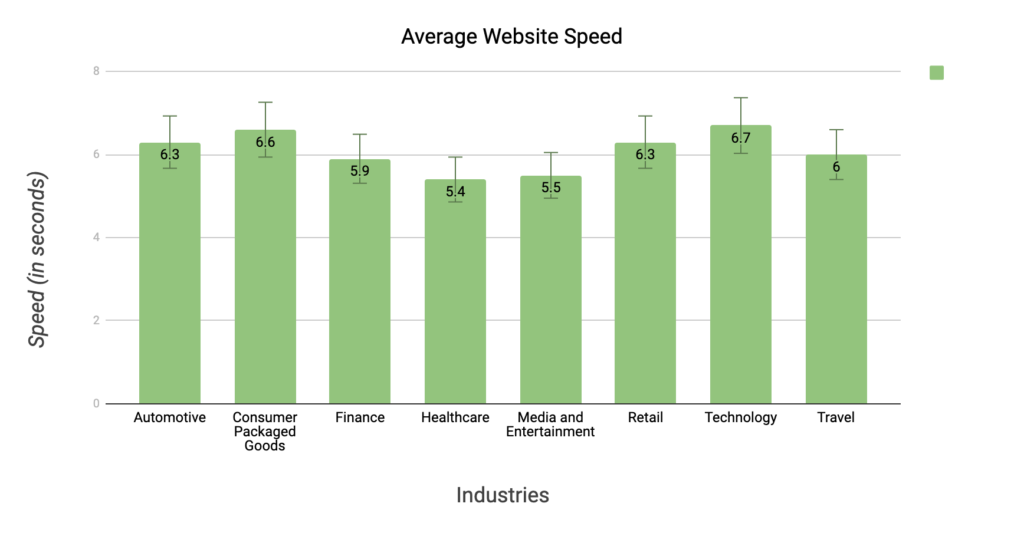Web hosting is crucial for any website—but it’s also very misunderstood. When most people first get started creating websites, they think they could just pick any web host and get started.
Big mistake.
You’ll end up choosing a web host that’s not only slow but was riddled with security issues that compromises your website and its visitors.
That’s what inspired us to write this article for you.
We want to walk you through exactly what web hosting is, how it works, and the features you should keep an eye out for when choosing a host for your website.Knowing these things now will save you a lot of time and money down the line. Once you nail the basics, you can move on the more advanced stuff—and make more money and attract more visitors as a result.
What is a Web Host?
Web hosts are the servers where a website “lives.” These servers are incredibly powerful pieces of physical hardware that houses all of the data and information related to those websites.
Here’s a picture of servers mounted on racks:

Every single asset of a website—from the way it looks to the content like blog posts, videos, and images—are stored on these servers. Visitors and website managers alike access the content via the web host.
These servers are typically located in data centers all across the world. These data centers house hundreds of servers and are owned by web hosting companies such as Bluehost or GoDaddy.
However, there are plenty of companies and organizations out there that own their own private servers. These are typically housed, on-premise servers that can be used to host websites. These are rare though.
The 4 Most Common Types of Web Hosting (and How They Work)
The great thing about web hosts is that there are plenty of different kinds of them out there.
That means no matter your website’s needs and specifications, there’s likely going to be a web hosting provider that meets your needs.
The trick is, of course, knowing each type of web hosting and what they offer. Here are the four most common types of web hosting:
- Shared
- VPS
- Dedicated
- Cloud
It’s helpful to think of these web hosts as an apartment or house. Depending on your budget and what you want out of your day-to-day life, you’re going to get a different type of home from others.
Shared Web hosting
Shared web hosting is the most basic type of web hosting. As such, it’s common for beginners and new bloggers to utilize this type.
If you’ve ever created a website before, you’ve likely used this method.
The way it works is simple: Your website will be hosted on a server that’s shared with several other websites. That means all the resources of that server is divided amongst all of the websites on that server.
This comes with its downsides and upsides. The downside is that if one of the other website experiences a spike in traffic, your website might suffer for it by seeing your speed and loading time go down.
However, since it’s shared, you’re going to be saving a lot of money on this hosting type.
Think of this as renting an apartment with a bunch of other roommates. You have your own bedroom, but you have to split resources like water, electricity, gas, the living room, and the kitchen with all your other roommates.
Who is Shared Hosting for?
Shared hosting is a great option for beginners or if you have a smaller website. That’s because it’s cheaper than a dedicated host, and you don’t need a lot of technical skills to get started and keep it running smoothly.
If you run a smaller personal blog with less than 25,000 monthly visitors, shared web hosting is for you.
Virtual Private Server (VPS)
A virtual private server (VPS) is a step beyond shared hosting. In fact, it’s pretty common for websites to move from shared to VPS hosting as their site gets more traffic.
The way it works is similar to shared hosting. Your website shares a single server with other websites. However, the number of websites you’ll be splitting the server with is much, much lower.
Also the server itself is split up into “virtual” servers where each website lives that essentially act like it’s own kind of dedicated server. That means your website will have more resources for ostensibly bigger traffic.
You also get optional root access with VPS hosting. That allows you to run custom configurations on the server.
You should expect to see better website performance from VPS hosting services since you won’t be sharing resources. That means higher uptime rates and faster loading times. If another site on the server has issues, you shouldn’t have to worry about your website crashing.
Think of it as renting your own apartment instead of splitting one with roommates. Along with your bedroom, you’ll also have your own kitchen and bathroom. No longer do you have to share resources with other people. You know exactly where your space is and can decorate it and furnish it to your heart’s content.
Who is VPS Hosting for?
VPS hosting is good for medium-sized businesses and startups that are looking to scale their website.
Also, if you’re a tech head or have some tech proficient people on your team and want to customize your site more, VPS hosting is a great route to go.
If you expect to see your traffic jump into the 50,000-100,000 monthly visitors range, it’s time to switch to VPS.
Dedicated Web Hosting
Dedicated web hosting is arguably the most ideal web hosting type. That’s because it gives you an entire dedicated server for your website and your website alone.
That’s right. Instead of sharing resources with other websites and hoping none of them experiences a spike in traffic that crashes your site, you have your very own server to customize and utilize.
This gives your website the opportunity to run at peak performance much more often than sharing a server. That means incredibly high uptime rates and consistently fast loading speeds.
There’s a few caveats of course. For one, dedicated hosting plans are quite expensive. You’re getting your own server for your website to live on after all.
It also takes a lot more upkeep than a shared server. You’ll be on the hook for everything from installing updates to checking for glitches, errors, and bugs.
Think of it like owning a house. With a shared server you had to go to an apartment building that you shared with other renters, dedicated servers gave you an entire building. That means much more resources, and space to customize to your liking.
However, it also means coming with the responsibilities of a homeowner. If there’s a leak in your roof or your fridge breaks, you’re going to have to fix it (or hire someone to).
Who is Dedicated Hosting for?
While they offer a lot of great features such as speed and good uptimes, dedicated hosting is not for the faint hearted.
If your website isn’t big and pushing at least 100,000 monthly visitors, you’re probably going to be just fine with a VPS or shared hosting. Also expect to pay anywhere in the neighborhood of $1,000-$2,000 a month for a dedicated server.
If you have the traffic volume, revenue, and technical resources though, dedicated hosting is a big step in the right direction for your website.
Cloud Web Hosting
Cloud hosting is one of the latest and trendiest types of web hosting.
Instead of your website living and utilizing the resources of one server, cloud hosts give you several remote servers. Each one offers a different service for your website.
That means if an issue comes up with one of the servers, you’re likely going to be fine as the other servers will take over for the fallen one.
As such, cloud web hosting is very scalable. In fact, you’ll be able to scale your resources on-demand and only pay for what you use. You’ll be able to scale it back too if you need it by going to the admin dashboard of your web host.
This is great for growing businesses that expect more traffic or might experience inconsistent spikes in traffic from time to time.
Cloud web hosting is also very secure. If one server is compromised, you have the other servers to rely on.
Another way to think of it is as a hotel. You can always upgrade your amenities and room to include bigger beds, access to the spa, or workout facilities. Or you can downgrade if you want to. The choice is yours.
Who is Cloud Hosting for?
Cloud web hosting is perfect for businesses growing and scaling quickly. Also, if you’re not sure when you’re going to experience spikes in traffic, this is the type of web hosting for you.
It allows you to add resources on-demand when needed. No more worrying about whether or not your site will lag or, worse, crash as a result.
If you have more than 50,000 monthly visitors, cloud hosting should definitely be one that you consider.
Other Types of Web Hosting to Consider
Below are three other types of web hosting that you should take into consideration when looking at web hosts—though they might not be as common as the four above.
WordPress Hosting
As the name suggests, this type of web hosting is optimized for WordPress. So if you’re considering using WordPress as your website’s content management platform, this should definitely be in consideration.
WordPress hosting typically come in two different forms:
- Shared WordPress Hosting. Leverages shared web hosting for your WordPress website. WordPress might also come pre-installed or with one-click installation.
- Managed WordPress Hosting. Provides benefits such as server caching, automatic updates, faster loading speeds, and enhanced securities.
So while it’s not its own type of web host per se, it is a type that falls under other categories of web hosting.
Who is WordPress Hosting for?
One thing that makes WordPress hosting better than other types of hosting (if you’re planning on using WordPress of course) is that it offers an added layer of security since it’s updated automatically.
This is crucial because WordPress is the most commonly used content management system in the world. That means it’s also the most vulnerable to cyber attacks. If security is a top consideration for your business (and it should be), so should WordPress hosting.
Reseller Web Hosting
Reseller web hosting is the practice of buying hosting from a provider and then reselling it to your customers. That means you choose the prices for the web hosting and can offer any other benefits on top of it.
So if you’re looking to build or host a website, reseller web hosting is likely not for you. However, it’s worth a mention because it can be very lucrative depending on your goals.
Who is Reseller Hosting for?
If you’re a web designer or developer, or if you run an agency, reseller hosting is a great option for you. It gives you an opportunity to bundle separate services like website building with hosting as well.
Plus, when you sell web hosting, your customers provide you with consistent monthly or annual payment for as long as their website exists. That’s continuous income as opposed to the single payment you might receive from something like web design.
Co-Location Web Hosting
This is a sub-category of dedicated web hosting—and it’s easily the most expensive one on the list.
That’s because instead of hosting your website on their servers, you provide your own server. You then rent out physical space for your servers in a co-location center. These centers provide your server with electricity, cooling, housing rack, IP addresses, and other resources to keep the servers running. You’ll also benefit from more bandwidth that co-location servers can give you.
While you’ll get a lot from a co-location web host, you’re still on the hook to provide your own server and also the upkeep for those servers. To install it, you’ll need to send your own authorized technician with the server to the co-location server.
If there’s an issue with the server or if you want to upgrade and do regular maintenance, you’ll have to head to an off-site location to do so.
Who is Co-location Hosting for?
Co-location web hosting is great for bigger businesses with the resources and capital to invest in maintaining an off-site server. The benefits of not needing to house the server yourself as well as more bandwidth could make it very lucrative for your business.
However, if you’re a smaller, more bootstrap business, we highly suggest you look elsewhere.
Uptime and Speed: The Two Most Important Aspects of Web Hosting
When looking at different web hosts, you’re going to be bombarded with a variety of different features and benefits that may or may not be important to your website.
While some of them might seem crucial, the only two things you should really be considering are uptime and speed.
Uptime
Uptime refers to the amount of time your website remains up and running. As such, it is possibly the most important feature of a good web host.
It’s typically referred to as a percentage between 1% – 100% where 100% is a web host that never goes down. However, it is rare to see any web host advertise uptime below 98%.
If a web hosting provider offers strong uptime rates (typically 99%+) then they likely have good, reliable servers to host your website.
Of course, that comes with a big caveat: it’s very hard to independently verify a web host’s true average uptime rate. As such, we have to rely on the numbers they publicly offer on their own website.
Many web hosts offer a “guarantee” uptime rate that’s usually around 99%. If you find your website’s uptime falls below their guaranteed rate or if it’s frequently down, you can be discounted.
That said, those guarantees typically come with a lot of red tape and fine print. So actually getting discounted might end up being impossible.
What’s a “Good” Uptime Rate?
If you’re new to web hosting, you might look at an uptime rate like 99% or even 98% and think that it’s pretty high.
In reality, numbers like that might mean that your website is out of commission for days on end.
In fact, here’s a chart of the percentage of uptime ranging from 98% to 99.999% compared to actual downtime.
As evidenced by the chart above, a single percentage point in uptime can mean the difference between three entire days your website is down in a year.
Bottom line: The higher the uptime the better. Of course, you can’t get rid of the risk of downtime completely. However, you should aim for at least a 99.9% uptime rate.
Speed
Speed refers to how long it takes for pages to load on your website. Along with uptime, it is another feature you need to prioritize when it comes to web hosting.
Think about times when you came across a website that took a while to load. It’s frustrating, and you’re likely going to just close the website and look somewhere else.
And it’s not just you. A study by Akamai found that even a one-second delay in a web page’s loading speed results in:
- 16% decrease in customer satisfaction
- 11% fewer page views
- 7% loss in conversions
This means if your website isn’t optimized for speed, it could result in a significant drop in page views and income.
What’s a “Good” Web Hosting Speed?
When it comes to how fast your website should load, it all depends on your visitors.
47% of people using desktops or laptops expect web pages to load in 1 second or less. Whereas 64% of mobile users expect pages to load in less than 4 seconds (Hubspot).
Bottom line: Your customers want a faster browsing experience.
Despite this, many industries don’t meet those standards. According to research from Google, most websites across eight top industries have an average site speed of more than 5 seconds.
Despite this, 40% of all website visitors abandon web pages that take longer than 3 seconds to load. That’s why you want to aim for under that time when optimizing your website for speed.
That’s why it’s so important to find a web host that’s right for you. After all, you’re going to need a different type of web hosting depending on what you plan to do with your website.
For example, a big media company that hosts a lot of videos on their pages shouldn’t look towards shared hosting. Otherwise, they can expect both awful speed and uptime rates. Instead, they might want to look towards dedicated or cloud web hosting.
Likewise, the small travel blog run by a backpacking enthusiast is going to want to look for something that fits their simpler needs. As such, shared or VPS hosting will suit them just fine.
Conclusion
Web hosting is something you want to get right first thing if you’re planning to start a website. When looking at your options, consider shared, VPS, dedicated, or cloud hosting.
For more help, be sure to check out our article all about the best web hosts.







